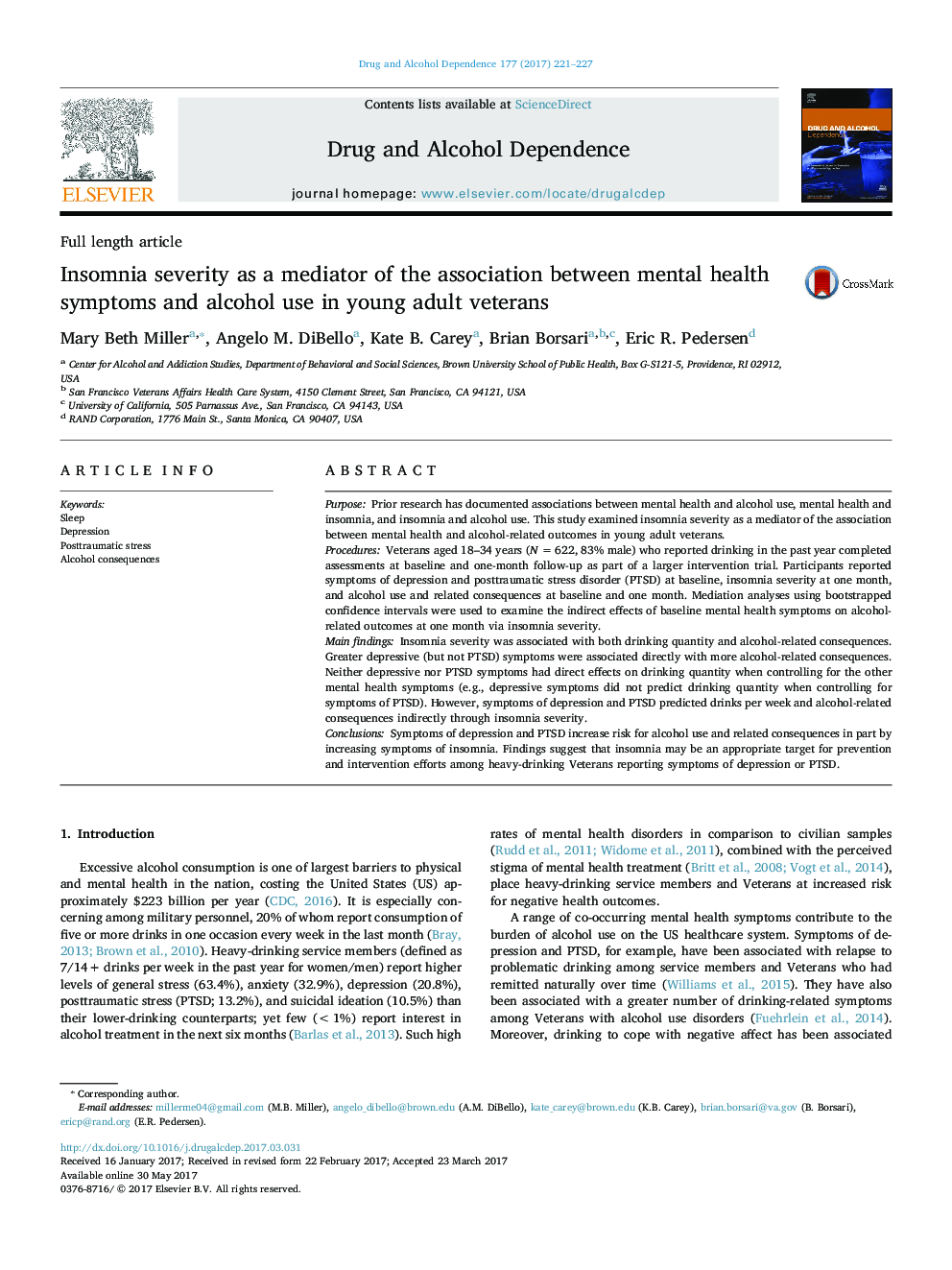| کد مقاله | کد نشریه | سال انتشار | مقاله انگلیسی | نسخه تمام متن |
|---|---|---|---|---|
| 5120045 | 1486114 | 2017 | 7 صفحه PDF | دانلود رایگان |
- Insomnia is associated with greater drinking quantity and more alcohol problems.
- Symptoms of depression predict more alcohol problems.
- Insomnia accounts in part for the impact of mental health symptoms on alcohol use.
- Insomnia may be an appropriate target for intervention.
PurposePrior research has documented associations between mental health and alcohol use, mental health and insomnia, and insomnia and alcohol use. This study examined insomnia severity as a mediator of the association between mental health and alcohol-related outcomes in young adult veterans.ProceduresVeterans aged 18-34 years (NÂ =Â 622, 83% male) who reported drinking in the past year completed assessments at baseline and one-month follow-up as part of a larger intervention trial. Participants reported symptoms of depression and posttraumatic stress disorder (PTSD) at baseline, insomnia severity at one month, and alcohol use and related consequences at baseline and one month. Mediation analyses using bootstrapped confidence intervals were used to examine the indirect effects of baseline mental health symptoms on alcohol-related outcomes at one month via insomnia severity.Main findingsInsomnia severity was associated with both drinking quantity and alcohol-related consequences. Greater depressive (but not PTSD) symptoms were associated directly with more alcohol-related consequences. Neither depressive nor PTSD symptoms had direct effects on drinking quantity when controlling for the other mental health symptoms (e.g., depressive symptoms did not predict drinking quantity when controlling for symptoms of PTSD). However, symptoms of depression and PTSD predicted drinks per week and alcohol-related consequences indirectly through insomnia severity.ConclusionsSymptoms of depression and PTSD increase risk for alcohol use and related consequences in part by increasing symptoms of insomnia. Findings suggest that insomnia may be an appropriate target for prevention and intervention efforts among heavy-drinking Veterans reporting symptoms of depression or PTSD.
Journal: Drug and Alcohol Dependence - Volume 177, 1 August 2017, Pages 221-227
